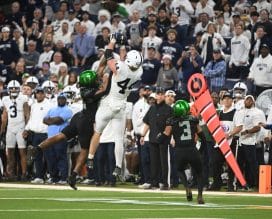Flyers
Remembering When a Pandemic Cancelled the Stanley Cup Final
Photo: Wikipedia Commons
By Rob Riches, Sports Talk Philly staff writer
By now, we're all familiar with the precautions being taken to mitigate the COVID-19 pandemic. Public gatherings of certain sizes are recommended to not take place, schools are closing, more people are working remotely and sports leagues around the world are suspending or outright cancelling their current seasons.
It's surreal to picture a world without sports. We almost take for granted how much of a welcome distraction they can be, as we all navigate the problems and hassles of everyday life. But, as hockey fans can tell you, shutting down isn't anything unprecedented.
In 1918, as the world was already being rocked by one of the most brutal conflicts mankind could ever fathom, it was dealt another decisive blow with the rise of the Spanish flu. Roughly 500 million people around the world were affected by the H1N1 strain, with mortality estimated between 17 and 100 million people. Philadelphia, at that point the third-largest metropolitan area in the country, was hit especially hard, with nearly 12,000 Philadelphians succumbing to the disease.
The NHL, just in its second season of existence after taking the place of the defunct National Hockey Association, played on. In the mid-1910s, playing for the Stanley Cup was just a bit different — rather than the best teams in the league facing off in an intense two-month tournament, the winner was decided in a best-of-five series between the NHL champion and the Pacific Coast Hockey Association champion.
In 1919, the Montreal Canadiens defeated the original Ottawa Senators team for the right to represent the NHL, while the Seattle Metropolitans — known as the first American team to win the Cup just two years earlier — edged out the Vancouver Millionaires (who you may remember from these excellent threads the Vancouver Canucks wore several Heritage Classics ago) to play on behalf of the PCHA. The series was exclusively played in Seattle, and both leagues' sets of rules were alternated for each game.
On March 19, the Metropolitans opened the series in grand fashion, stamping out the Canadiens in a 7-0 rout. Frank 'The Flash' Foyston picked up a hat trick, while Muzz Murray scored two goals of his own. Newsy Lalonde carried the weight for the Canadiens in Game 2, though, scoring four goals in a 4-2 win to draw the series even. Game 3 saw the Metropolitans put up seven goals yet again, as Foyston scored a hat trick in the 1st period as part of a four-goal game to lead them to a 7-2 victory.
Game 4, set to be played under NHL rules, ended in a tie, as Georges Vézina and Hap Holmes (one of just two players to win the Stanley Cup with four different teams) allowed no goals over regulation and two overtime periods. Game 5, technically considered as a continuation of Game 4 and thus played under NHL rules again, saw Newsy Lalonde score two goals, including the overtime winner, in the Canadiens' 4-3 win. Though the series was a best-of-five, a sixth game was to be played under PCHA rules to determine the winner of the Stanley Cup.
That sixth game would not come to pass, though, as the Spanish flu had reared its ugly head. Players from both teams had become sick with the flu, and five of the Canadiens' 13 players were hospitalized — Lalonde, Joe Hall, Billy Coutu, Louis Berlinguette and Jack McDonald. Coach George Kennedy, also stricken by the flu, offered to forfeit the series to the Metropolitans, but they refused to win the Cup by forfeit. Several days later, Hall had died, and the deciding game was never played. Succinctly, the etching for the 1919 series just reads:
"MONTREAL CANADIENS
SEATTLE METROPOLITANS
SERIES NOT COMPLETED"
To this day, it's the only time the Stanley Cup wasn't awarded after playoffs were held, and the first of two seasons where there was no champion — the other being due to the 2004-05 NHL lockout. The 1919 Final had elements that any modern-day hockey fan would appreciate — stellar individual performances, some of the game's all-time greats, high-scoring action, phenomenal hockey names — but unfortunately, its ultimate legacy is its premature and abrupt ending.
Ultimately, the Canadiens would go on to win 23 Stanley Cup championships, and the 1919 Final remains just a small chapter in their otherwise rich history book. The Metropolitans would return to the Final in 1920, only to lose to the Senators in five games in what would be their last Cup Final appearance. After the 1923-24 season, the Metropolitans folded, and professional hockey would not return to Seattle until the upcoming expansion club in the 2021-22 season.
A total of eight players in that series would go on to be enshrined into the Hockey Hall of Fame — Vézina, Lalonde, Hall, 'Phantom' Joe Malone and Didier 'Cannonball' Pitre for the Canadiens, and Foyston, Holmes and Jack Walker for the Metropolitans. Vézina's legacy is also remembered and appreciated by fans to this day, as he is the namesake for the award going to the NHL's best goaltender every season.
For now and the foreseeable future, the NHL and other sports leagues will remain paused, and will resume at the appropriate time — whenever that may be. It's a tricky, confusing time for sports fans, and we've got a lot more time on our hands now, but it's all for the best. At the end of the day, though, this is nothing the NHL hasn't experienced before, and a proactive step so that history doesn't repeat itself.





